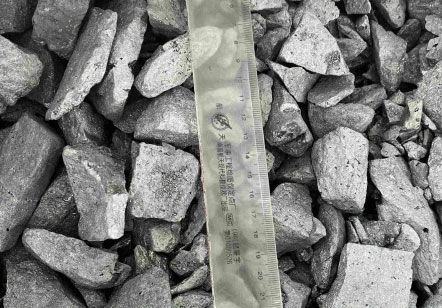
Ferro Silicon Alloy, commonly known as FeSi, is a vital compound that has revolutionized various industries with its exceptional properties. This article delves into the characteristics and applications of FeSi, highlighting its role in driving innovation and efficiency across different sectors.
Ferro Silicon Alloy is a composite material consisting primarily of iron and silicon, with small amounts of other elements such as aluminum and calcium. It is produced through the smelting process, where silica and coke are combined with iron to create an alloy with a high silicon content. FeSi is available in various compositions and sizes, making it adaptable for diverse applications.
FeSi plays a crucial role in the steelmaking industry as a deoxidizer and alloying agent. When added to molten steel, FeSi reacts with oxygen and other impurities, reducing them and improving the quality of the steel. Additionally, FeSi is used as an alloying element to enhance the steel's strength, hardness, and magnetic properties. These characteristics make FeSi an indispensable component in the production of high-quality steels for automotive, construction, and machinery applications.
The foundry industry extensively utilizes FeSi as an inoculant and nodularizer in the production of cast iron. Inoculation with FeSi promotes the formation of graphite, enhancing the mechanical properties of cast iron, such as increased strength and reduced shrinkage. Nodularization with FeSi transforms flake graphite into nodular or spherical graphite, further improving the cast iron's ductility and impact resistance. These benefits contribute to the production of high-quality castings with excellent machinability and structural integrity.
FeSi finds application in the magnesium industry as a nodularizing agent. When added to molten magnesium, FeSi promotes the formation of nodular or spheroidal graphite, improving the magnesium's mechanical properties and castability. This facilitates the production of high-quality magnesium-based products, including automotive parts, aerospace components, and electronic devices.

FeSi is widely utilized in the chemical industry for its reducing properties. It is a key component in the production of various alloys, such as ferrosilicon manganese and ferrosilicon magnesium. These alloys find use in the manufacturing of stainless steel, specialty steels, and non-ferrous alloys. FeSi's ability to modify the properties of these alloys contributes to their enhanced performance and durability in diverse applications.
The versatile applications of Ferro Silicon Alloy highlight its importance and potential for future advancements. Ongoing research and development aim to improve FeSi's properties, including composition control and grain size distribution, to meet the evolving demands of different industries. As FeSi continues to prove its efficacy in steelmaking, the foundry industry, magnesium production, and the chemical sector, its utilization is expected to expand further, leading to increased innovation, efficiency, and improved product quality.
In conclusion, Ferro Silicon Alloy drives innovation and efficiency across multiple industries. Its applications in steelmaking, foundries, the magnesium industry, and the chemical sector demonstrate its versatility and significance. With ongoing advancements and its valuable properties, FeSi is poised to play a vital role in shaping the future of these industries, facilitating the production of high-quality materials and promoting technological progress.

Write a Message